This page is based on this
Wikipedia article Text is available under the
CC BY-SA 4.0 license; additional terms may apply.
Images, videos and audio are available under their respective licenses.
Tunneling or tunnelling may refer to:

The earliest texts of William Shakespeare's works were published during the 16th and 17th centuries in quarto or folio format. Folios are large, tall volumes; quartos are smaller, roughly half the size. The publications of the latter are usually abbreviated to Q1, Q2, etc., where the letter stands for "quarto" and the number for the first, second, or third edition published.
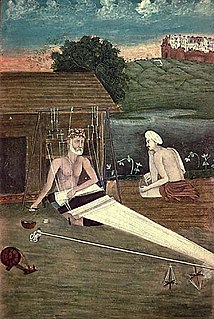
Kabir was a 15th-century Indian mystic poet and saint, whose writings, according to some scholars, influenced Hinduism's Bhakti movement. Kabir's verses are found in Sikhism's scripture Guru Granth Sahib. His most famous writings include his dohas or couplets.
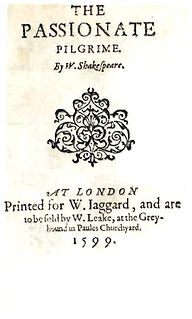
The Passionate Pilgrim (1599) is an anthology of 20 poems collected and published by William Jaggard that were attributed to "W. Shakespeare" on the title page, only five of which are considered authentically Shakespearean. These are two sonnets, later to be published in the 1609 collection of Shakespeare's Sonnets, and three poems extracted from the play Love's Labour's Lost. Internal and external evidence contradicts the title page attribution to Shakespeare. Five were attributed to other poets during his lifetime, and two were published in other collections anonymously. While most critics disqualify the rest as not Shakespearean on stylistic grounds, stylometric analysis by Ward Elliott and Robert Valenza put two blocks of the poems within Shakespeare's stylistic boundaries. Jaggard later published an augmented edition with poems he knew to be by Thomas Heywood.
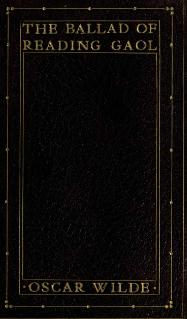
The Ballad of Reading Gaol is a poem by Oscar Wilde, written in exile in Berneval-le-Grand, after his release from Reading Gaol on 19 May 1897. Wilde had been incarcerated in Reading after being convicted of homosexual offences in 1895 and sentenced to two years' hard labour in prison.
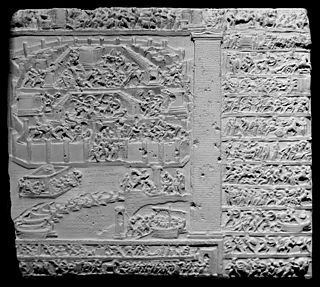
Stesichorus was the first great lyric poet of the West. He is best known for telling epic stories in lyric metres but he is also famous for some ancient traditions about his life, such as his opposition to the tyrant Phalaris, and the blindness he is said to have incurred and cured by composing verses first insulting and then flattering to Helen of Troy.

The Mersey Sound is an anthology of poems by Liverpool poets Roger McGough, Brian Patten and Adrian Henri first published in 1967, when it launched the poets into "considerable acclaim and critical fame". It went on to sell over 500,000 copies, becoming one of the bestselling poetry anthologies of all time. The poems are characterised by "accessibility, relevance and lack of pretension", as well as humour, liveliness and at times melancholy. The book was, and continues to be, widely influential with its direct and often witty language, urban references such as plastic daffodils and bus conductors, and frank, but sensitive depictions of intimacy.

"Holy Willie's Prayer" is a poem by Robert Burns. It was written in 1785 and first printed anonymously in an eight-page pamphlet in 1789. It is considered the greatest of all Burns' satirical poems, one of the finest satires by any poet, and a withering attack on religious hypocrisy.

Death of a Naturalist (1966) is a collection of poems written by Seamus Heaney, who received the 1995 Nobel Prize in Literature. The collection was Heaney's first major published volume, and includes ideas that he had presented at meetings of The Belfast Group. Death of a Naturalist won the Cholmondeley Award, the Gregory Award, the Somerset Maugham Award, and the Geoffrey Faber Memorial Prize.
A notebook is a small book often used for writing.

The Road of Dreams is a book of poetry by crime writer Agatha Christie. It was published at her own expense by Geoffrey Bles in January 1925 priced at five shillings (5/-). Only one edition of the 112-page volume was ever published and this was undated.

The Waste Land is a poem by T. S. Eliot, widely regarded as one of the most important poems of the 20th century and a central work of modernist poetry. Published in 1922, the 434-line poem first appeared in the United Kingdom in the October issue of Eliot's The Criterion and in the United States in the November issue of The Dial. It was published in book form in December 1922. Among its famous phrases are "April is the cruellest month", "I will show you fear in a handful of dust", and the mantra in the Sanskrit language "Shantih shantih shantih".
"A Song in Storm" is a poem written by Rudyard Kipling (1865-1936).

The Fringes of the Fleet is a booklet written in 1915 by Rudyard Kipling (1865–1936). The booklet contains essays and poems about nautical subjects in World War I.

Quarto is a book or pamphlet produced from full "blanksheets", each of which is printed with eight pages of text, four to a side, then folded twice to produce four leaves. The leaves are then trimmed along the folds to produce eight book pages. Each printed page presents as one-fourth size of the full blanksheet.
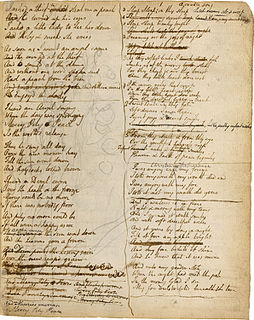
The Notebook of William Blake was used by William Blake as a commonplace book from c.1787 to 1818.

You Are Happy is a 1974 collection of poems by Canadian writer Margaret Atwood.














